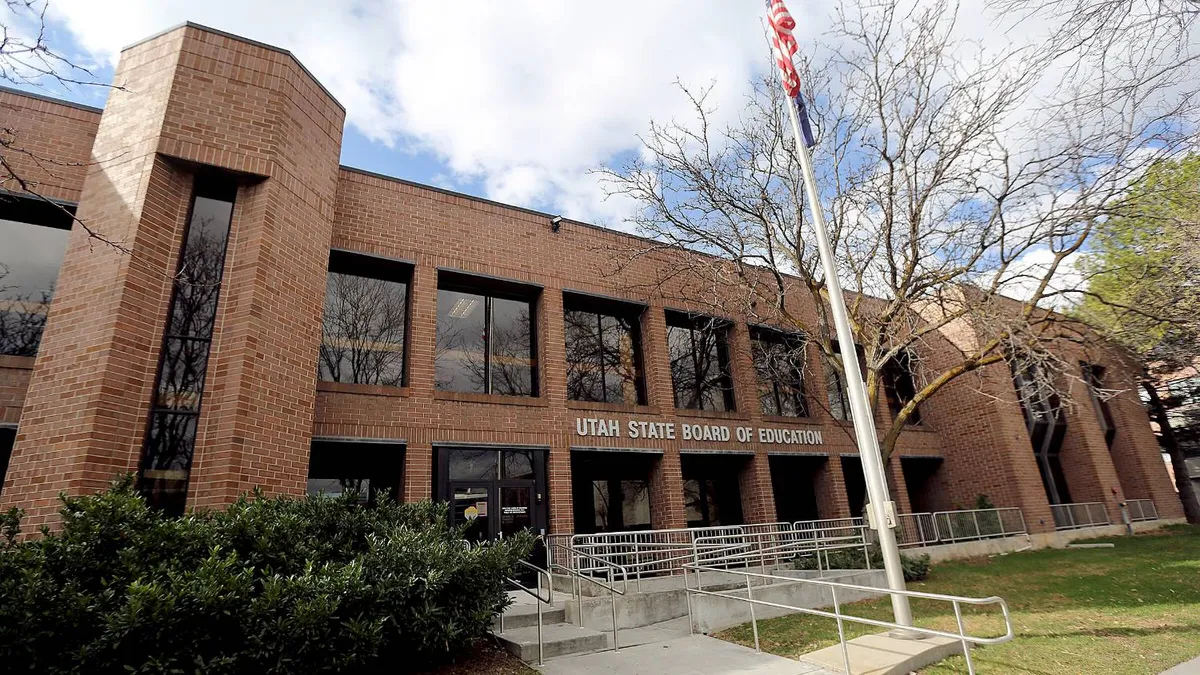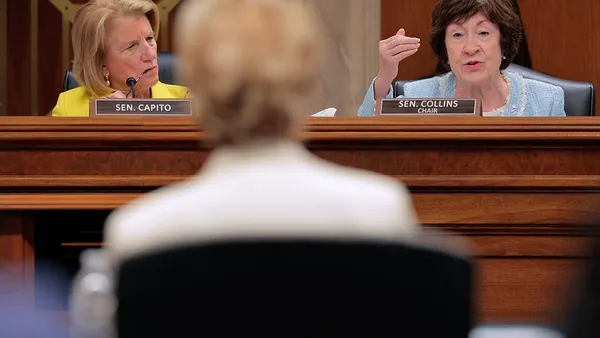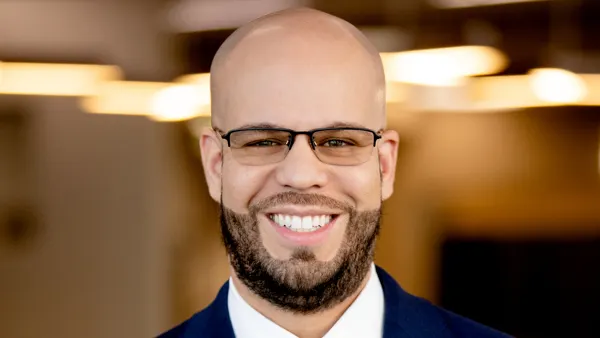Dive Brief:
-
A Utah school district had to take measures to protect a high school athlete after a state board of education member singled her out in a social media post for her appearance, erroneously implying that she was transgender. The image, posted by board member Natalie Cline in early February, led to the girl being targeted by community members.
-
Following an investigation into Cline's conduct, the board said it was stripping her of virtually all powers including removing her from committee assignments, prohibiting her from raising issues on board agendas, and restricting her from attending any board advisory committee meetings. It also requested Cline’s resignation by Feb. 19, which she rejected.
-
The chain of events triggered criticism from Utah Gov. Spencer Cox and Lt. Gov. Deidre Henderson, who both issued a statement Feb. 7 saying they were "stunned to learn of the unconscionable behavior" of Cline and others.
Dive Insight:
Cline's actions come amid a boom in parental activism and state board involvement on issues like LGBTQ+ rights. While no elected state boards of education flipped parties in 2022 elections, Utah was among the states where the existing Republican majority expanded its representation, according to a 2022 analysis by the National Association of State Boards of Education.
Republican-led measures like restricting transgender students from athletic teams aligning with their gender identities have since escalated, with half of states now restricting trans student athletes, according to a count by the Movement Advancement Project, a nonprofit think tank that tracks the issue.
In 2022, the Utah state legislature passed H.B. 11, which bars transgender girls from playing on girls’ sports teams. However, Cox, a Republican, vetoed the measure that March, citing procedural issues and millions of dollars in legal fees for local school districts as a result. Cox also cited high suicide rates for transgender youth as a reason behind his decision, and called for “kindness, mercy and compassion.”
Ultimately, state lawmakers overrode Cox's veto and enacted the law, which has been on pause since August 2022 due to a lawsuit filed by the American Civil Liberties Union and other civil rights organizations.
LGBTQ+ civil rights advocates say the spread of anti-LGBTQ+ legislation, including on transgender issues like facility access and athletic team participation, has led to unsafe schools for students in those communities.
In Cline's case, the targeted student was misidentified by the board member as transgender and received derogatory comments from the community.
"The last thing our children need is an elected official harassing them on social media," Cox and Henderson said in a joint statement in which they also lauded Granite School District officials for acting quickly to ensure the student’s safety and protection.
They added that Cline has a history of conduct that has "embarrassed" the state and its board of education.
"My deepest apologies for the negative attention my post drew to innocent students and their families," Cline said in a Feb. 7 statement labeled "Constitutionally Protected Speech."
"She does have a larger build, like her parents," Cline continued. "We live in strange times when it is normal to pause and wonder if people are what they say they are because of the push to normalize transgenderism in our society."
In the state board of education’s Feb. 14 statement announcing its resolution to censure Cline, it said she violated policy and bylaws. Particularly, she violated requirements that state “members shall respect the privacy of students, USBE employees, and school level employees, including refraining from direct and indirect identification of such, in a negative light in any public setting, venue, or platform where there is a reasonable expectation of privacy,” and hold board members “to a higher standard than the general public in areas of conduct and ethics.”













